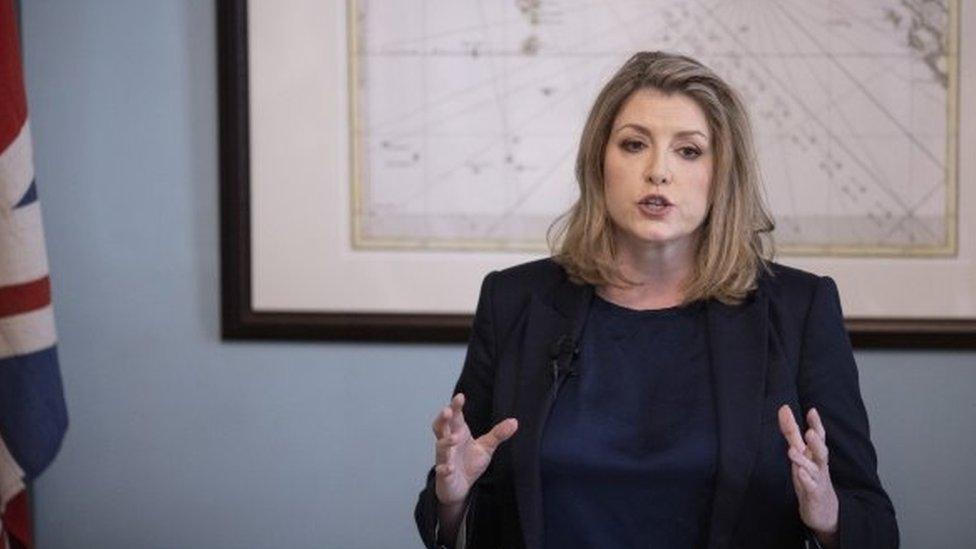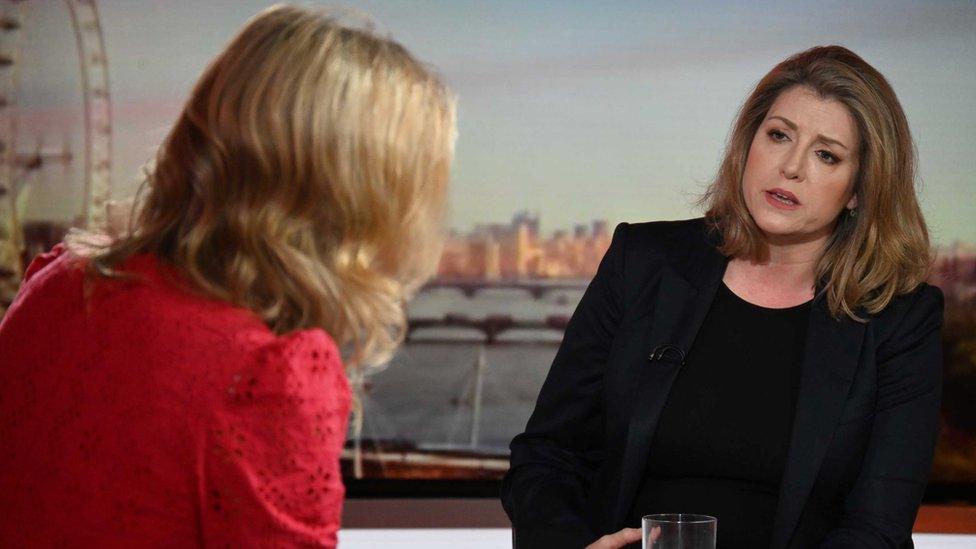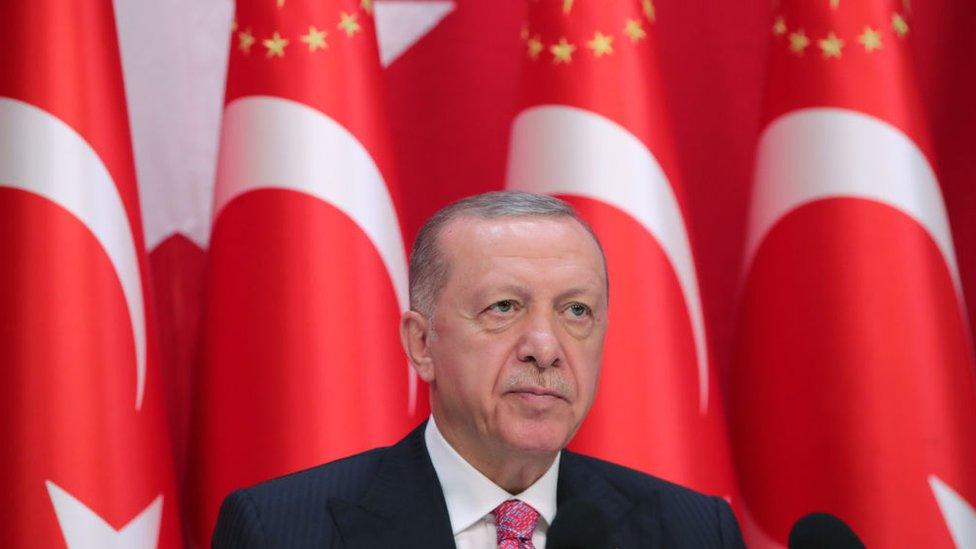Penny Mordaunt's false Brexit claim about Turkey
- Published

Tory leadership candidate Penny Mordaunt has again repeated a false claim she made during the 2016 referendum campaign that the UK wouldn't have been able to block Turkey from joining the EU.
That claim from Ms Mordaunt was not true.
What did she say in 2016?
In the 2016 referendum campaign , she supported Vote Leave which warned that Turkey, with its population of 76 million, was set to join the EU.
Allow X content?
This article contains content provided by X. We ask for your permission before anything is loaded, as they may be using cookies and other technologies. You may want to read X’s cookie policy, external and privacy policy, external before accepting. To view this content choose ‘accept and continue’.
Ms Mordaunt - who was armed forces minister at the time - said it was likely that it would become an EU member in the next eight years - by 2024.
She was questioned about this on the BBC's Andrew Marr Show in May 2016.
He told Ms Mordaunt: "The British government does have a veto on Turkey joining so we don't have to let them join."
She replied: "No, it doesn't. We are not going to be able to have a say."
A veto is the power to block a decision from going ahead.
Andrew Marr repeated the point: "I thought accession was something that each country could veto if it wanted to."
Ms Mordaunt again denied that: "No. I do not think that the EU is going to keep Turkey out. I think it is going to join, I think the migrant crisis is pushing it more that way."
Penny Mordaunt: "We're not going to be consulted... they are going to join, it's a matter of when"
What Ms Mordaunt said in 2016 was false. All EU countries - including the UK - had a veto on Turkey's admission, something Reality Check pointed out at the time.
The legislation that allows a veto has been in place since the start of European integration - France used its veto in the 1960s, for example, to stop the UK from joining the bloc.
What is Ms Mordaunt saying now?
When challenged about her 2016 claim on LBC radio on 12 July, Ms Mordaunt said: "There is a provision for a veto but we could not have used it because David Cameron gave an undertaking that he would support their accession and having given that undertaking to a Nato country, he would not have been able to walk away."
She again reiterated her defence of her 2016 comments when interviewed by Sophie Raworth on the BBC's Sunday Morning programme on 17 July.

Ms Mordaunt said: "No, we didn't Sophie have a veto because we couldn't use that provision in the treaty." She again mentioned Mr Cameron's "undertakings to Turkey".
David Cameron had previously supported Turkey's negotiations over EU's membership.
In a debate in June 2010, he said: "It should continue to be our policy to support Turkish membership wholeheartedly and to try to persuade others to do the same."
The next month he told Turkey: "I will remain your strongest possible advocate for EU membership."
But in 2016, he said: "It is not remotely on the cards that Turkey is going to join the EU any time soon. They applied in 1987. At the current rate of progress, they will probably get round to joining in about the year 3000."
On Ms Mordaunt's claim, he said: ""Britain, and every other country in the European Union has a veto on another country joining. That is a fact."
And it's clear that Mr Cameron, despite his past support for the general principle of Turkish membership, could still have chosen to exercise the UK's veto.
What has happened to Turkey's membership bid?
Turkey first applied to join the EU in 1987 and it started talks on membership in 2005.
It can take many years for a nation that is a candidate for EU membership to make the economic and structural changes necessary to satisfy the bloc's requirements. In 2016, Turkey was not considered close to being in a position for accession.
Prior to 2016, it even looked like other EU countries - including France - might veto Turkey's bid. German politicians also had concerns over the Turkish government's response to demonstrations in Istanbul's Taksim Square in 2013.
In July 2016, an attempted coup in Turkey prompted a widespread government crackdown, which the EU called "unacceptable". Turkey has since made very little progress towards membership and the talks are currently frozen.

Turkish President Recep Erdogan
French President Emmanuel Macron told his Turkish counterpart in 2018 that there was no chance of progress towards Turkey joining the EU at present.
In July 2022, Michael Lake, a former EU ambassador to Turkey, wrote a letter to the Guardian newspaper arguing that, external: "Turkey was not and is not in line for EU membership."
